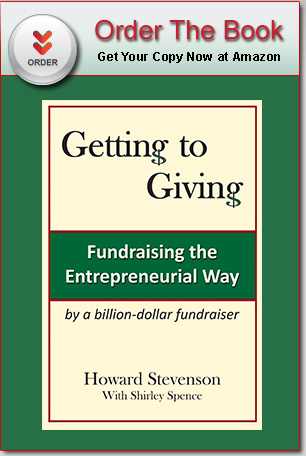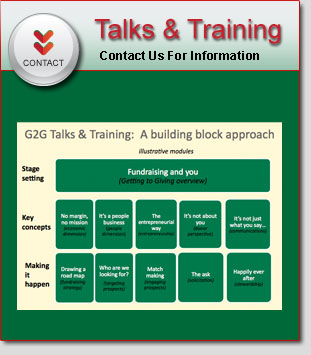


We took your question about lapsed donors – How did you let it happen? – to heart. Hopefully, our story will help others. Read More
I can’t tell you how many times I have heard that request, and I am always happy to oblige. Unfortunately, it’s sometimes a painful experience. Read More
Donor retention is an essential part of the cycle of giving, and warrants focused attention. Here are three ways to sustain donor interest and commitment to your cause. Read More
This February 23 headline from Philanthropy Today – “Male Donors Respond Best to Pitches that Stress Self-Interest” – attracted some attention. The byline was equally provocative: “Attention fundraisers: Stop trying to pull on men’s heartstrings.” I basically think that they got it wrong, for three reasons. Read More
I applaud your desire to be more strategic, but I hope that you also feel … Read More
To start, I would suggest you check out a general overview called “How to Seal the Deal” that we offered in a previous newsletter. Here, I’ll talk about some of the common problems you can run into.
The syllogism is true: “Good decisions come from wisdom, wisdom comes from experience, and experience comes from bad decisions.” I’ve experienced my share of gift agreement mistakes, as a donor and a fundraiser. Read More
That’s actually a hard question to answer because there have been so many good ones over the years. (That would fall into the good news category, I think.)
What makes for a “good one”? For me, it reflects three things. Read More
Year-end giving is a tradition that goes back to Good King Wenceslas[1]. These days, according to The Chronicle of Philanthropy, nearly half of all donations to nonprofits arrive in the last quarter. That’s a tough way to run a business, and may explain why so many nonprofits end the year with a shortfall. Read More
There can be any number of reasons why a donor may not want their largesse known. Here are a few examples that I’ve encountered: Some people simply believe that the only true giving is unknown. Others may not be interested in public recognition, but not mind if people think nicely of them. Read More
The answer is yes; it all depends on why and how you do it. But first, a cautionary note: Don’t presume that a significant gift is all about recognition. Some donors (including me) may be offended at the presumption that public recognition is the main motivator for their largesse. Most significant donors, in my experience, are motivated by a desire to have an impact on something they care about. They may even prefer anonymity. The key is to acknowledge their gift in a way that is meaningful and comfortable for them, not you. Read More